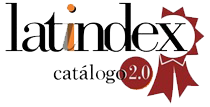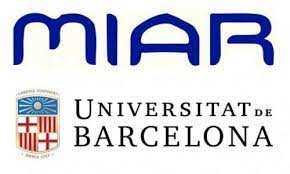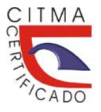
Peer evaluation
Arbitration Process
Estrategia y Gestión Universitaria undertakes that all articles received will be submitted to an arbitration process. In this sense, the journal applies from vol. 12 no. 1 open peer review, all due to the new standards of the open science philosophy and our mandate with a more committed and responsible science. It should be noted that it uses external evaluators for its reviews. The refereeing of the articles has two purposes: the first, to decide whether or not to publish the evaluated article; and the second, to get the authors to value, in terms of recommendations, some opinions on the research results they present.
To conduct the arbitration, the elements indicated in the article evaluation guide must be taken into account. This guide consists of two parts: one related to the quality criteria of the evaluated article, and the other related to the referee's final judgment. In the comments, the referee may reflect both the arguments regarding the evaluation of each question and incorporate some recommendations about the content.
The referee's criteria on the article must be sent to the magazine's email or to the main editor of the magazine. (estrategiaygu@gmail.com ert931025@gmail.com) within a maximum of 15 days after receiving it.
If changes are requested in the article, the author(s) must confirm whether they accept making them. If there is no response within a period of 7 days, the Editorial Committee will consider that the changes are not accepted, and therefore, the article will be considered rejected. If the modification is accepted, the author(s) must resend the modified article to the journal's editor within a period of no more than 15 days after being notified of the initial assessment.
Upon acceptance of the publication of their proposal, authors automatically transfer the patrimonial rights of the article to the journal for its electronic dissemination and use, both by the scientific community and the journal itself, at no cost.
The content developed in the texts is the responsibility of the authors and, therefore, does not necessarily coincide with the point of view of the Editorial Committee or the Scientific Arbitration Committee. At the discretion of the Editorial Committee, critical articles, defenses, and/or comments on articles published in the journal may be accepted.
Thanks to OJS, authors will be able to track the different phases of the editorial process.
Evaluation Criteria
- The article has a high academic content derived from a detailed study or research, with solid theoretical foundations and clear results.
- The statements are supported by consistent and solid arguments. The article is built upon clear, comprehensive, and relevant theory related to the topic.
- An interesting, relevant, and pertinent empirical research is presented. Additionally, a rigorous and thorough analysis of the information is conducted.
- The methodology used is suitable for the study topic and is coherent with the stated theoretical framework. Furthermore, a detailed description of the methodology is provided.
- Language usage, writing style, clarity of exposition, and organization of ideas.
- The article presents a contribution of new theses or knowledge on the topic (Originality).
- Citations have their corresponding bibliographic references and include 70% of up-to-date references from the last 5 years, with priority given to updated references in medium and high-impact journals (Dialnet, DOAJ, Scielo, Scopus, Web of Science).
- The conclusions take into account the objective of the article and summarize the main discussed ideas.
- The article is of interest to the readers of the journal.
- Observations can be made within the text through comment boxes or highlighted with color to indicate more specific observations.
- The form and the article will be reviewed and modified before being sent to the author(s). Additionally, a letter will be provided indicating whether it is approved, rejected, or requesting recommendations for text improvement.
- In the event that the author(s) does not agree with any clause of the verdict, a written explanation of the disagreement will be addressed to the Editor of the Journal for consideration.
- Once the article is returned with the corrections made by the author(s), it will be reviewed again by the Editor to ensure that the observations were addressed correctly.
- The final decision for the publication or rejection of an article rests with the Director, Editor, and Editorial Board of the Journal, who will take into account the opinions of the referees, although it is not obligatory.
Peer Review Evaluation
The evaluation result may be:
Approved without modifications. The authors are requested to transfer their rights.
Approved with basic modifications. The authors are given 1 week to make the
corresponding adjustments.
Approved with structural modifications. The authors are given 2 weeks to
make the corresponding adjustments.
Rejected. The article is withdrawn from the editorial process
of the journal management system OJS.





















